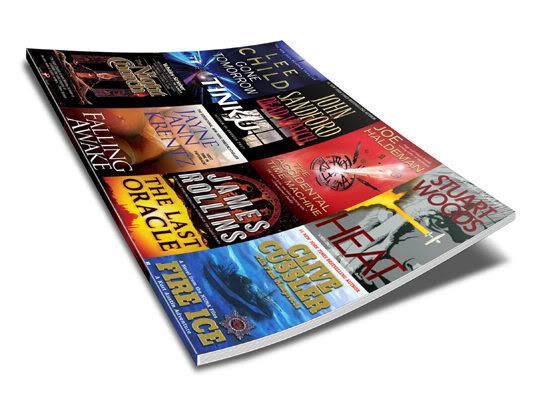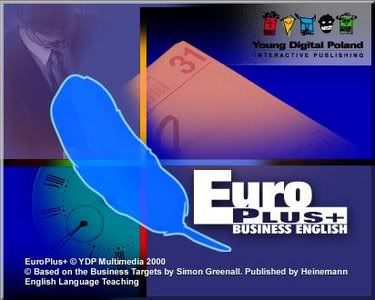TTC Video - Timothy Spurgin - The English Novel (2009)
eLearning - DVDRip | AVI | 640x432 29.00fps | English | Run time: ~24 x 30 min | MP3 ~128.00 kbps | 3.57 GB
Lecture, Famous Novelists, Novels, Literature, History
Who can imagine life without novels?They have served not merely as diversions but as companions for so much of our lives, offering hours of pleasure and, at their best, insights few of us can ever quantify. And if the speed at which they pile up by our bedside often exceeds our ability to read them, there's a security in looking ahead to the next enticing volume.
But the simple joy of reading novels sometimes obscures our awareness of the deeper roles they play in our lives: honing our intellect, quenching our emotional thirsts, and shaping our sense of ourselves and of the world we live in.
Many of our most basic assumptions, as Professor Timothy Spurgin notes, have been shaped by novels. To the extent that we see society as complex and interconnected, or view human personality as the product of early childhood experience, we are鈥攚hether we realize it or not鈥攗nder the influence of novelists like Jane Austen and Charles Dickens, George Eliot and Virginia Woolf.
The impact and significance of the novel form may be especially obvious in the case of the English novel. Through the period that gave rise to the novel, England experienced a convulsive social transformation鈥攐ne that produced the world's first modern, capitalist economy. Along the way, traditional social values often appeared to be outdated, and so did traditional narrative forms.
It is no surprise, then, that the great English novelists were eager to create something new and different. Breaking from traditions in which stories were usually centered on aristocrats and nobles, they focused on the thoughts and feelings of ordinary people, taking pains to capture the rhythms of everyday life. At the same time, they also reacted to a number of larger developments: industrialization and urbanization, democratization and globalization.
What insights and attitudes do we owe to these writers? How do their lives and works fit into the larger history of the novel form鈥攁nd what is the meaning of that history for us today?
Professor Spurgin answers these questions and many others, tracing the novel from its beginnings in the 18th century, when Samuel Richardson penned Pamela, to its culmination in the work of the 20th century Modernists, including Lawrence, Joyce, and Woolf.
Learn What Made the English Novel Different
Although you may have read or seen film versions of some great English novels, you may not have had the chance to place those works in a larger historical context or to consider some of their most distinctive features.
In The English Novel, Professor Spurgin identifies several especially important elements of the English novel tradition:
A preoccupation with issues of class and status
A virtual obsession with stories of courtship, love, and marriage
A striking preference for "comedic" endings, in which virtue is rewarded and justice meted out.
What's more, Professor Spurgin relates the plots and characters of particular novels to larger movements in English history. He shows, to cite just two examples, that Austen's Pride and Prejudice responds to deepening worries about the moral authority of the ruling classes, and that Hardy's Tess of the d'Urbervilles reflects the influence of new discoveries in science, including Charles Darwin's theory of evolution.
Thus, this is much more than a literature course. Indeed, it consistently reminds us that the English novel does not exist in a vacuum.
New Forms of Literature
Although all literary and narrative forms are shaped by larger historical movements, the novel may be especially well-suited to the tasks of sociological critique and psychological analysis. In fact, as Professor Spurgin argues, such tasks are taken up by the novel in especially interesting and exciting ways.
"A great novel often seems to describe an entire society," he explains, "creating a vivid image of the relationships among whole classes of people. It's no wonder that novels are frequently described as the forerunners of modern ethnographies and social histories.
"Equally important to a definition of the novel form," he adds, "is its interest in psychology. Unlike other popular narrative forms鈥攆ilm, for example, or even drama鈥攖he novel is free to probe the inner recesses of both mind and heart."
In describing these aspects of the novel form, Professor Spurgin also tells how classic works of fiction were originally produced and consumed. Consider, for example, the circulating libraries on which most Victorian readers of fiction relied so heavily. These libraries, which might be likened to modern video stores, were not only outlets for the rental of books; they also exerted a profound influence on both form and content.
Novels tended to be published in three volumes because such a format enabled three people to be reading鈥攁nd renting鈥攖he library's novel at the same time. And because writers were dependent for their livelihoods on having their books available through circulating libraries, these institutions were able to exert tremendous market pressure on authors, discouraging them from writing about subjects that might embarrass or confuse young readers, especially women.
"Minds Unfurnished with Ideas"
Such a notion was not unusual for that era, and it was one that had been around for most of the novel form's history. Samuel Johnson, one of the great literary figures of 18th-century England, reflected the viewpoint of the time鈥攖hat moral considerations were an essential part of literary evaluation鈥攚hen he proclaimed in an essay: "These books are written chiefly to the young, the ignorant, and the idle, to whom they serve as lectures of conduct and introductions into life. They are the entertainment of minds unfurnished with ideas, and therefore easily susceptible of impressions; not fixed by principles, and therefore easily following the current of fancy; not informed by experience, and consequently open to every false suggestion and partial account."
It wasn't until the 1880s and '90s that complaints about the circulating libraries' prudishness began to emerge, seriously eroding much of their influence by the turn of the century.
Dickens's familiarity with the hard realities of London life was gained by far more than observation. And it is characteristic of Professor Spurgin's approach that Dickens the man receives as much attention as Dickens the writer. For us to learn, for example, that Dickens's father had been sent to debtor's prison, forcing young Dickens to go to work in a factory, casts his novels in a whole new light. Dickens never got over the shattering of his youthful hopes of achieving some sort of distinction鈥攅ven after he had done exactly that鈥攁nd it is impossible for us now to read his tales of the desperately poor or disinherited, anxiously searching for a better place in life, without appreciating the deeply personal pain out of which it was written.
Glimpse the Human Lives
In the same way, Professor Spurgin leaves you with a new appreciation for what each of this course's writers meant to the development of the English novel鈥攁nd to literature as a whole鈥攁nd an understanding of the person behind the words.
By placing more than two centuries of great English novelists in the context of British history and showing how their lives intersected with the creation of their art, The English Novel offers a fascinating look at a form of enduring popularity and importance whose influence has been felt everywhere novels are read.
professor : Timothy Spurgin
production land: usa
Run time: ~24 x 30 min
01. Definitions and Distinctions
02. The 鈥淓nglishness鈥?of the English Novel
03. Historical Context of Early English Fiction
04. The Rise of the Novel - Richardson and Fielding
05. After 1750 - Sterne, Burney, and Radcliffe
06. Scott and the Historical Novel
07. Austen and the Comedic Tradition
08. Austen and the History of Consciousness
09. Dickens - Early Works
10. Novelists of the 1840s - Thackeray
11. Novelists of the 1840s - The Brontes
12. Dickens - Later Works
13. After 1870 - Review and Preview
14. Eliot and the Multiplot Novel
15. Eliot and the Unfolding of Character
16. Hardy and the Natural World
17. James and the Art of Fiction
18. Conrad and the 鈥淪cramble for Africa鈥?br />
19. Ford and Forster - Transition to Modernism
20. Lawrence and the 鈥淏right Book of Life鈥?br />
21. Joyce - Dublin and Dubliners
22. Joyce - Realism and Anti-Realism
23. Woolf and the Poetic Novel
24. The Impact of the Novel
Plz Downloads
 Comments (0)
All
Comments (0)
All










